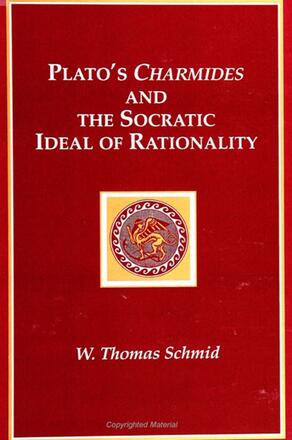
Plato's Charmides and the Socratic Ideal of Rationality
Alternative formats available from:
Interprets Plato's Charmides as a microcosm of Socratic philosophy that presents Plato's vision of the life of critical reason and of its uneasy relation to political life in the ancient city.
Description
In this book, W. Thomas Schmid demonstrates that the Charmides—a platonic dialogue seldom referenced in contemporary studies—is a microcosm of Socratic philosophy. He explores the treatment of the Socratic dialectic, the relation between it and the Socratic notion of self-knowledge, the Socratic ideal of rationality and self-restraint, the norm of holistic and moral health, the interpretation of the soul as the rational self, the Socratic attitude toward democracy, and the connections between dialectic autonomy and moral community. Schmid argues that the depiction and account of sophrosune—human moderation—in the Charmides adumbrates Plato's vision of the life of critical reason, and of its uneasy relation to political life in the ancient city.
Schmid's methodological approach to the Charmides supposes that a far-reaching and intimate relationship exists between the drama and the argument, the logos and ergon, of the dialogue. He argues that the contrast between the surface level of meaning and the depth level is essential to the Platonic art of philosophical writing, and to the pervasive role of irony in that writing, and he shows in detail how this contrast functions in the Charmides.
W. Thomas Schmid is Professor of Philosophy and Religion at the University of North Carolina at Wilmington. He is the author of On Manly Courage: A Study of Plato's Laches.
Reviews
"…a lucid and thoughtful study of Plato's Charmides … a valuable starting point for readers wanting to explore the different kinds of questions (philosophical, literary, socio–political) raised by Plato's early dialogues … a stimulating study. " — The Classical Review
"This book is a lucid presentation of an interpretation of the Charmides that takes its essential bearings from the interplay of word and deed. Schmid's work is clear-headed, sensible, thorough, and consistently helpful. He knows the dialogue well and he makes a compelling case that, when reading Plato, it is imperative to take into account the dramatic elements as well as the logical argument. By sticking so tenaciously to the details of the text, he avoids the danger of over-generalization. " — David Roochnik, Boston University
"As a contribution to Plato scholarship, this book presents a clear example of an interpretive approach to Plato that unifies drama and argument, which is the most important current project of Plato scholarship. As a contribution to the academic discussion of 'Socratic philosophy,' it presents a clear and interesting alternative to the majority approach exemplified by Vlastos and his students. It will be essential reading for anyone who works on the Charmides or on Socratic philosophy. " — Gerald A. Press, Hunter College, City University of New York